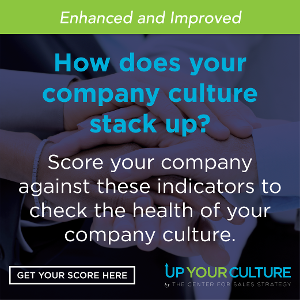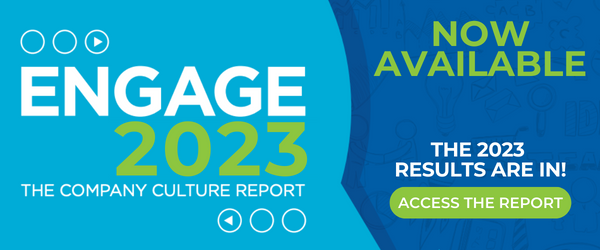
Finding the “perfect” job candidate is not easy. You may be looking for specific factors in candidates, such as their natural strengths, their experience, and their skills, but what are they looking for with your company for them to want to come on board? And what will it take for them to want to stay?
It's important to remember that while you are interviewing candidates, they are also interviewing you. There are many things they are looking for, but one important factor for them to consider is your organization’s culture. They want to know if your company's Core Values align with their personal Core Values (their principles and beliefs).
How to Know an employee is Engaged in Their Role
 Each new person you bring on board will make a big difference in the culture (and ultimately the success) of your company, so it is important to dig a bit deeper to ensure candidates align with who you are as a company too. You want to be authentic and represent who you truly are as a company so that they are banging on your door to work there.
Each new person you bring on board will make a big difference in the culture (and ultimately the success) of your company, so it is important to dig a bit deeper to ensure candidates align with who you are as a company too. You want to be authentic and represent who you truly are as a company so that they are banging on your door to work there.
Think back to your own experiences. Have you ever worked with a group or organization that just wasn’t the right fit for you and didn’t align with who you are? Almost everyone has been in a position where they just didn’t quite fit.
I know someone who is a few years out of college who accepted their first job and was extremely excited to begin in their new role (mostly because they had a paying job!). After a bit of time, they began to lose the energy and enthusiasm they once had. The company they worked for went against everything they felt passionate about in their personal life. It so happened that their personal Core Values were not aligning with their company. Due to this factor, they began searching for a company that lined up more with who they were as a person. The fit just wasn’t right for them.
If that has happened to you before as well, you understand these feelings. When a person is engaged in their job, they feel differently, though. A few words that may describe a person who is engaged in their role would be:
- Motivated
- Energized
- Happy
- Enthusiastic
- Confident
- Freedom to express yourself
- Authentic
- Loves their job
Ensuring you find potential candidates who feel this way at work is vital to your success. The cost of replacing someone you hire is huge. The Society for Human Resource Management (SHRM) reported that the average cost to replace someone equates to 6-9 months of their salary. This includes all your recruiting efforts and the training you provided along the way. Spending extra time upfront to ensure the culture fit is right will save you in the future.
Company Culture Matters to Job Seekers
The company culture you have is a game-changer for job seekers. Candidates are looking for who you authentically are as a company and what you represent. They are looking to see if your overall vision aligns with who they are. Strong company cultures have been at the top of job seekers for years, with expectations they have with a company.
Louis V. Gerstner, Jr, the former CEO of IBM shared how important your culture is to candidates when he shared:
“Until I came to IBM, I probably would have told you that culture was just one among several important elements in any organization's makeup and success – along with vision, strategy, marketing, financials, and the like… I came to see, in my time at IBM, that culture isn’t just one aspect of the game, it is the game. In the end, an organization is nothing more than the collective capacity of its people to create value.”
Knowing that your company culture IS the game for candidates, it is important to have your company’s Reason for Being (why do you exist?) and Core Values (how you complete that work) in place as they identify who you are as a company. They are searching for how you treat employees and the expectations you have for their role. You need to consider if the company's Core Values align with a candidate’s personal Core Values.
If you don’t have company Core Values, that is a great place to begin. Your Core Values set expectations:
- How you treat each other and work together
- How you talk to each other
- The way work is assigned and completed
These Core Values can’t just be words on the wall or aspirations. These words must be authentic and represent who you are as a company. Otherwise, people quickly discover that the company isn’t right for them, and your turnover rates increase.
Our company's Core Values are Quality, Integrity, and Responsiveness. All of these words align with my personal brand, allowing me to be myself at work, every day, authentically.
Sharing who you are as a company allows others to decide if they feel you “are their people” and want to join your team. Salary and perks are important to people, but the fit they are looking for is a deciding factor.
Share with candidates who you are and ask questions to ensure that they also align with your company. Natural talents, experience, and skills are important when filling a role, but FIT truly matters both for you and your candidates.









LEAVE A COMMENT